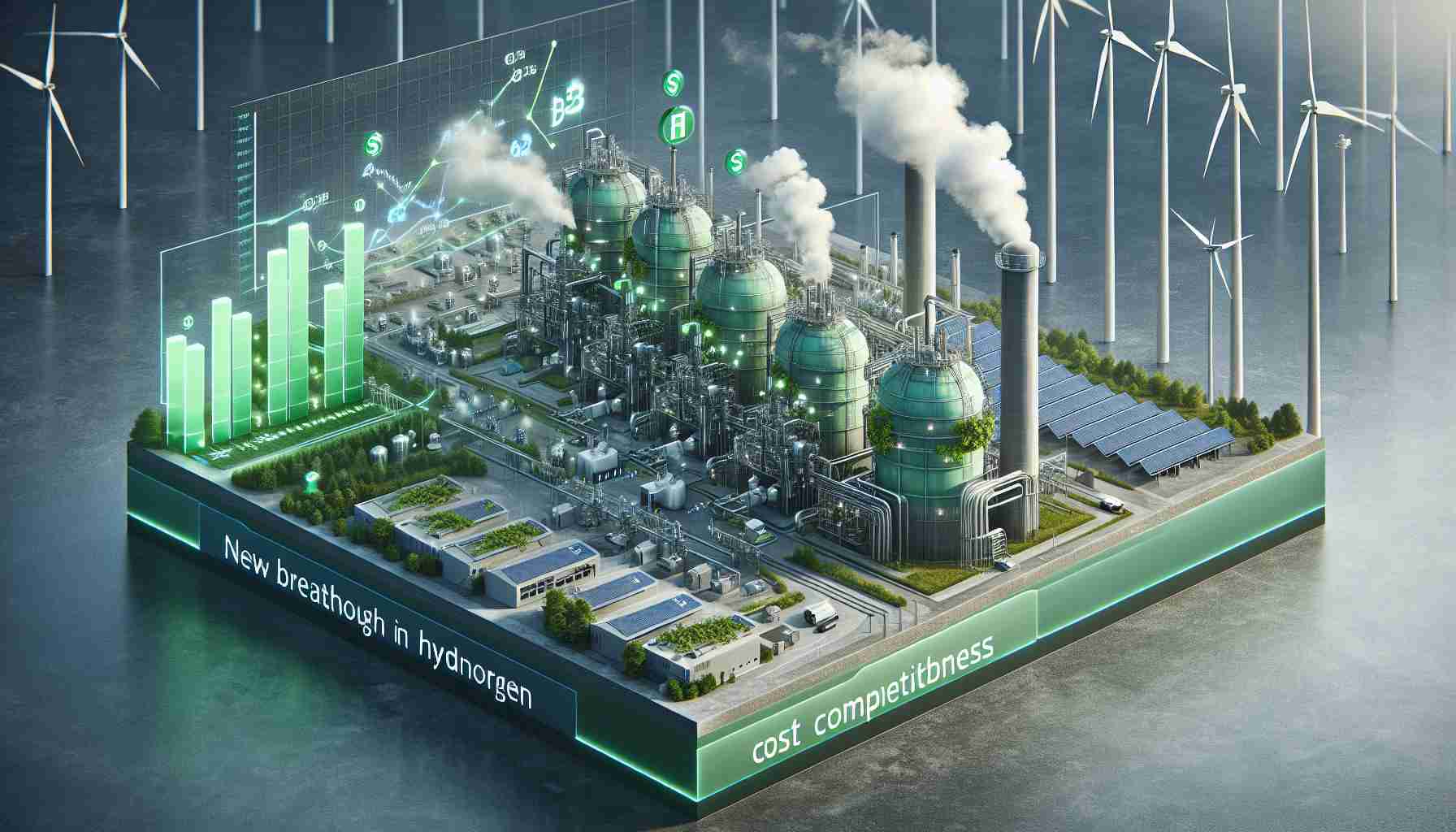The transition towards green hydrogen is more crucial than ever for ushering in a sustainable energy future. Yet, the lingering challenge lies in its higher costs compared to grey and brown hydrogen, generating a barrier to its widespread acceptance and making it critical to find solutions.
A recent analysis by CareEdge Ratings indicates that the current levelised cost of green hydrogen (LCOH) is 1.75 times that of grey hydrogen and 1.50 times that of brown hydrogen. The ambition is to reduce this to approximately $2.1 per kilogram. Achieving this goal entails an impressive 35%-40% reduction in electrolyser expenses and improvements in efficiency by 12%-14%, alongside comprehensive policy support.
The study underlines that modernising electrolyser technology and enhancing their efficiency are pivotal steps forward. The investment requirement to produce one million metric tonnes of green hydrogen is significant, with key expenses being the renewable energy infrastructure and electrolysers themselves. Notably, renewable energy projects command 48% of the capital expenditure, with electrolysers accounting for 34%.
Furthermore, production-linked incentives from the Government of India, such as direct production subsidies and capital support for electrolysers, are poised to lower these hefty costs. Industries like refineries, which presently hold the largest stake in hydrogen demand in India, could spearhead the adoption of green hydrogen due to their low integration costs.
The burgeoning demand from sectors like ammonia production, coupled with significant export potentials, positions green hydrogen as a promising player in the energy market. However, tackling storage and transportation challenges will be decisive for leveraging these opportunities effectively.
The Untold Impact of Green Hydrogen: Revolutionizing Economies and Communities
Green hydrogen is seen as a potent catalyst for a sustainable energy revolution, yet not all facets of its transformative potential have been explored. Beyond the technological hurdles and cost disparities, the burgeoning green hydrogen industry is set to reshape economies and communities in unexpected ways. Here’s how this emerging industry impacts various sectors and what controversies brew beneath its promising surface.
How Green Hydrogen Transforms Economies
The shift towards green hydrogen is not just an energy transition; it’s an economic one. Countries investing in green hydrogen infrastructure could see a ripple effect throughout their economies. Employment opportunities are one of the primary benefits, as developing and maintaining hydrogen infrastructure requires a skilled workforce. Countries that are early adopters might gain a competitive edge in the burgeoning global hydrogen marketplace, fostering new sectors and industries from manufacturing to logistics.
Surprising Facts About Green Hydrogen
Did you know that green hydrogen production could potentially boost renewable energy adoption? To meet hydrogen production demands sustainably, more renewable power plants need to be established. This incentivizes countries to increase their investment in solar and wind farms, not only driving down the costs of green hydrogen but also advancing broader climate goals.
Another interesting aspect is the role of water in green hydrogen production. Electrolysis, the process by which green hydrogen is produced, requires water splits into hydrogen and oxygen. Therefore, regions with abundant renewable resources but scarce water supply may face challenges. This calls for innovative solutions in water management and might promote technological advances in water-saving electrolyser designs.
Controversies and Challenges
The path to green hydrogen’s dominance isn’t without contention. Environmentalists raise concerns about the water-intensive nature of hydrogen production. Potential water scarcity could spark debates similar to those surrounding biofuels, where food production was once pitted against fuel.
Furthermore, there’s a debate on who benefits from the green hydrogen transition. While large industries like steel and ammonia production stand to gain, smaller communities may not directly reap the economic benefits without deliberate policy measures to include them in the value chain. Equity in this transition—ensuring that rural and underprivileged sectors don’t fall behind—is a crucial discussion point.
Addressing Key Questions
Can green hydrogen solve storage problems for renewable energy?
Yes, green hydrogen is not only an energy source but also a potential storage solution. It can be used to store excess energy generated from renewables, offering an alternative to battery storage and ensuring energy availability regardless of the time of day or season.
What are the development prospects for green hydrogen in developing countries?
Developing countries have the opportunity to leapfrog into green technologies by adopting green hydrogen. This transition could diminish their reliance on fossil fuels and forge a path toward energy independence. However, this requires substantial investment and international cooperation to build necessary infrastructure.
The potential link between hydropower and green hydrogen could mean countries rich in hydroelectric resources might lead the charge in adopting and benefiting from hydrogen technologies, provided they balance the ecological impacts effectively.
In conclusion, while green hydrogen presents an attractive path to a sustainable future, the road is laden with challenges that require innovative thinking and inclusive planning. From reshaping job markets to spurring new technological frontiers, its impact will undeniably be vast and varied. The world watches eagerly to see which countries and communities will lead in harnessing its powerful promise.











